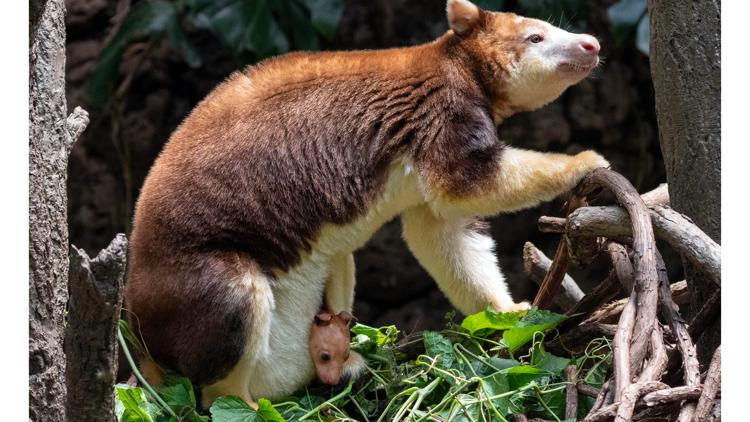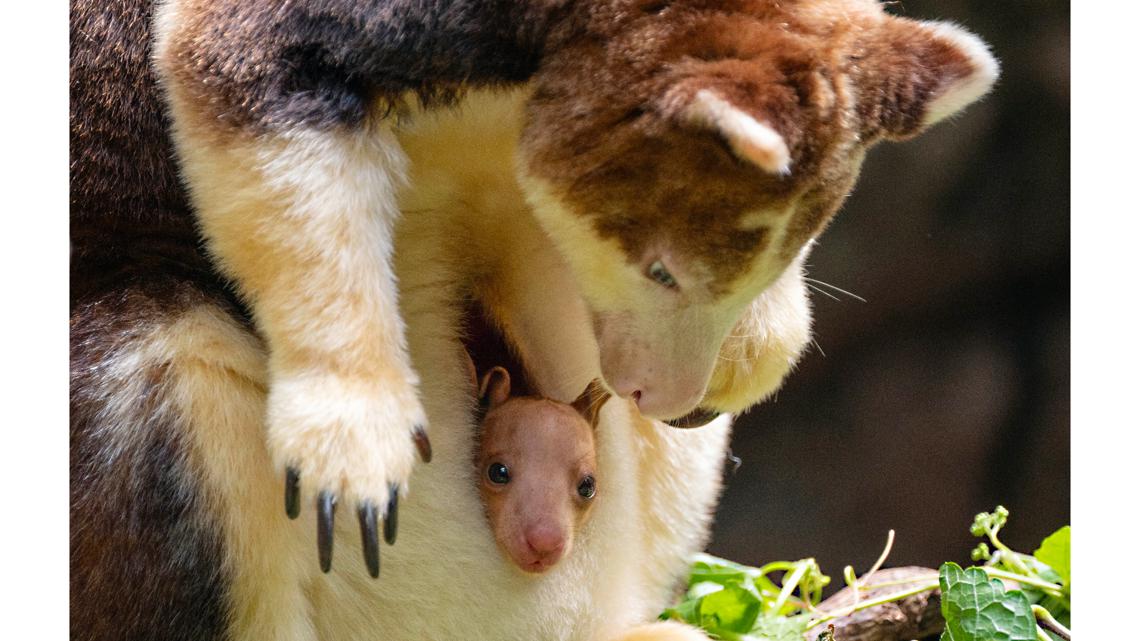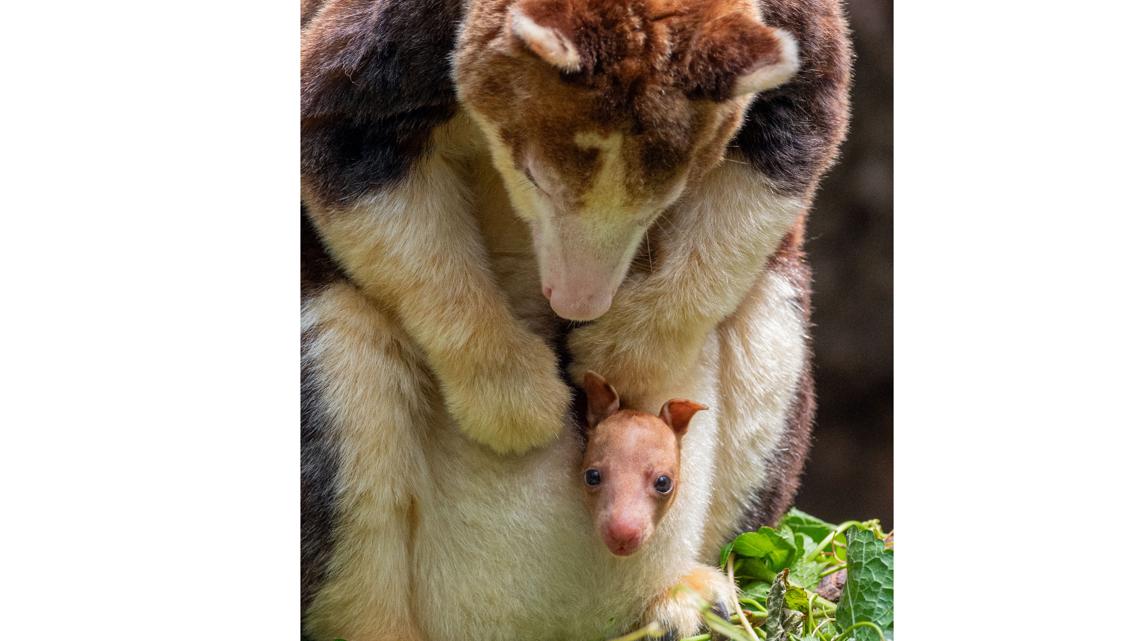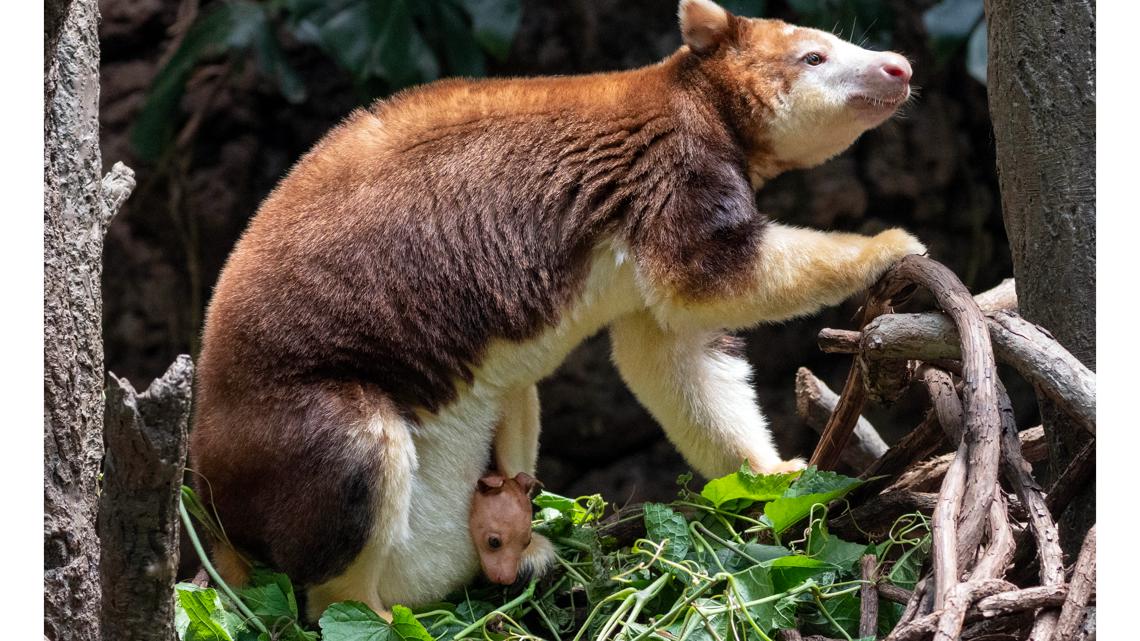It takes around seven months after they're born for young tree kangaroos to start peeking out of the pouch.


NEW YORK — The second baby of a tree-dwelling kangaroo made its public debut this week in New York, poking its pink head head out of its mom's furry white pouch.
The tiny Matschie’s tree kangaroo, or Dendrolagus matschiei, was born in December and is the second born to the same mother since 2022. It also was the third of its kind born at the Bronx Zoo since 2008.
The tree kangaroo species only gestate for about six weeks before they are born and immediately crawl into their marsupial moms' pouches, the zoo said in a statement. It takes around seven months for the young to start peeking out of the pouch.


There are only around 2,500 tree kangaroos in the wild and 42 in captivity, the zoo said. In a statement Friday, a Bronx Zoo spokesperson said that the kangaroo's birth was significant for the network of zoos that aims to preserve genetic diversity among endangered animals.
"It's a small population and because of that births are not very common," said Jessica Moody, curator of primates and small mammals at the Bronx Zoo. “So it's a rare and exciting event,” adding that baby tree kangaroos are “possibly one of the cutest animals to have ever lived. They look like stuffed animals, it's amazing.”


The tree kangaroos are native to the Huon Peninsula in Papua New Guinea, where they are threatened by human activities such as habitat destruction and hunting, the statement said. They live primarily in trees and are smaller than Australia’s better-known red kangaroo. An adult tree kangaroo weighs between 20 and 25 pounds (9–11 kilograms). The joeys are about the size of a human thumb when they are born, but grow to as long as 30 inches (76 centimeters).
Wildlife restoration programs often lean on zoos for genetic diversity. For example, wolves reintroduced to the wild are often given zoo-born pups to raise, reducing the risk of inbreeding while expanding wild populations.


.png)









 English (US) ·
English (US) ·